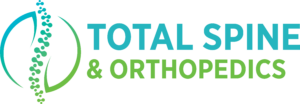
Carpal Tunnel Syndrome (CTS) is a common condition that affects the hand and wrist, causing numbness, tingling or weakness. CTS occurs when the median nerve, which runs from the forearm to the hand, becomes compressed at the wrist. Orthopedic treatments can help alleviate these symptoms and improve the function of the hand.

During a carpal tunnel release procedure, a small incision is made in the palm of the hand and the transverse carpal ligament is cut to release the pressure on the median nerve. This procedure can help to alleviate symptoms and improve function in the hand.
Recovery time after carpal tunnel syndrome surgery varies depending on the individual and the type of procedure performed. Patients may need to wear a splint or brace for several weeks following surgery to protect the incision and promote proper healing. Physical therapy may also be recommended to help regain strength and function in the hand and wrist.
It is important to note that surgery is not always necessary for CTS treatment, and non-surgical options should always be considered first. In some cases, symptoms can be managed through lifestyle changes such as ergonomic modifications, avoiding repetitive motions, and maintaining a healthy weight.
If you are experiencing symptoms of CTS, it is important to consult with an orthopedic specialist, such as our physician team here at Total Spine, to determine the best course of treatment for you. With the right combination of non-surgical and surgical options, it is possible to alleviate symptoms and improve the function of the hand and wrist.

Melbourne: 709 S Harbor City Blvd, Ste 110, Melbourne, FL 32901
Orlando: 9145 Narcoossee Rd, Ste A200, Orlando FL 32827
Titusville: 494 N Washington Ave, Titusville, FL 32796
Our Hours: Monday - Friday 8:00 AM to 5:00 PM
Copyright © Total Spine and Orthopedics - Icons From FlatIcon